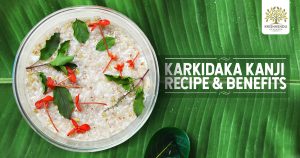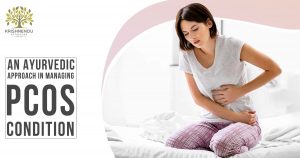Blog
Monsoon Hair Care Tips
Monsoon season brings in the happiness of enjoying the cool weather, constant showers and fresh lush greenery, but it comes with a load of hair problems and infections. Yes, you heard it right! The climate change experienced during monsoon season can cause a lot of damage to your hair including hair loss, dandruff, scalp infections, itchy scalp and dry hair. Especially if you get drenched in the rain, your hair is being exposed to the dirt and dust laden rainwater which damages the follicles of your hair. However, with proper care these problems can be treated and prevented to maintain healthy and strong hair. Here are some of the effective Ayurveda hair care tips to be followed during monsoon season: 1. Shampoo your hair twice a week Humidity during monsoon season will lead to accumulation of dirt and dust in your hair making it more frizzy, unmanageable and prone to more damage. As a result, you experience an increase in hair loss. An effective way to tackle this is to wash your hair at least twice a week with mild shampoo, free of chemicals and prepared with natural ingredients like hibiscus, henna, tulsi, shikakai and amla. 2. Oil regularly To prevent frizzy and dry hair it is important to oil your hair regularly in order to retain moisture. Massage your hair with warm oil, medicated or mixed with essential oils, for at least 30 minutes prior to hair wash. This stimulates blood circulation and promotes hair growth, reduces dryness of hair, itchy scalp, dandruff, etc. 3. Balanced diet Hot oily foods are monsoon’s best companion and consuming it would only cause more hair damages and problems. Replace those oily and junk food with healthy and fresh foods that are rich in vitamins, minerals and proteins. Include salads, sprouts, flax seeds, fruits and vegetables in your daily diet. Also, drink plenty of water to keep yourself and your hair hydrated. 4. DIY Natural hair packs Make your own hair wash using natural ingredients like shikakai, ritha, curry leaves, fenugreek seeds, tulsi leaves and green gram. Another way is to make a paste of hibiscus leaves and mint leaves along with some lime juice. Apply this paste onto the scalp and wash after 30 minutes with mild shampoo. To nourish your hair, make a pack using honey and milk and massage thoroughly on your scalp and hair. Soak 3-4 spoons of fenugreek seeds in water overnight. Grind the seeds and massage this paste on your scalp and wash thoroughly.



Monsoon Skin Care: Ayurveda Tips and Remedies for Flawless Skin
The fresh looking landscape with heavy showers, lush greenery, dark clouds, raindrops and what not, everything around us looks picture perfect. But can we say the same about our skin? Well, humidity in the atmosphere casts a negative impact on our skin. The imbalance of doshas in our body during monsoon season paves way to skin problems like acne, pimples, eczema, dermatitis and mainly, fungal infections. Therefore, the first step towards a holistic Ayurvedic approach to monsoon skin care is to identify the skin type or prakruti, which are Vata, Pitta or Kapha. Those with dry, thin, dehydrated, cool to touch and vulnerable skin that is prone to rashes during windy or dry weather falls under Vata category. Ones with skin that has breakouts, less tolerance to hot elements like weather or food, photosensitivity, more patches and moles are said to be under the category Pitta . And Kapha skin would be thick, greasy and would show better tolerance to sun. Apart from these three, one could also have a combination skin: Vata-Pitta (dry and sensitive), Kapha-Pitta (oily and sensitive) or Vata-Kapha (dry and oily in some areas). A few changes in your daily skin care routine and lifestyle is all that is required for a fresh and glowing skin. Here are some of the key Ayurveda tips and remedies to take care of your skin during monsoon season: Balanced Diet Incorporate a lot of fruits and green vegetables, warm and hydrating foods in your diet particularly nuts and their oils (almonds, walnuts, soy-bean oil, etc.). Have light food as Agni or the digestive fire in our body would be weak and indigestion could lead to various skin problems and infections. Include black pepper, ghee, amla, ginger and lemon in your meals. Avoid fried, spicy, cold, preserved food and acidic foods such as tomato, vinegar and citrus fruits. Replace your morning tea or coffee with herbal teas comprising of cardamom, tulsi, ginger, cinnamon, etc. Consume warm soups, stews, dal, curry, herbal teas and rice as part of your daily diet. Keep your skin hydrated by drinking at least 8 to 10 glasses of water every day to or include healthy juices like beetroot, cucumber or carrot juice. Oil massage During monsoon season our skin pores open up due to the humidity and moisture content in the air. Thus, it makes the skin more receptive to Ayurvedic medications and oil massages. Herbal oil massages can combat chances of fungal and bacterial infections caused due to the moisture on skin. Mix neem oil and sesame oil together and gently massage your skin for 15 minutes. Other Ayurvedic oils like Pindathailam, Balaswagandhadi kuzhambu and Dhanwantharam kuzhambu can be used. Then, take a bath in lukewarm water. Follow this process at least once in every week. Go organic Steer clear of alcohol-based skin cleansers or soaps as it makes your skin dry and causes irritation. Replace them with herbal substitutes like green gram powder instead of soap and for natural cleanser prepare a paste with two tablespoons of besan or gramflour, turmeric powder and water as required. Leave it on for 15 minutes and rinse well. Use natural ingredients for treating acne and pimples. Rosewater is apt for naturally refresh and moisturize your skin. Make sure that you use pumice stone to scrub your legs well. Dry it thoroughly, especially the area around your toes and massage with foot cream that has lemongrass or tea tree oil content. Stay dry Don’t let your skin remain wet for a long time period as it could cause fungal infections and diseases. Keep your skin folds clean and dry as it could be a breeding ground for infections. Boil water with some Neem or Triphala leaves and cool it. Use this water to clean as it helps in fighting fungal infections. Home Remedies: Wash your face two or three times a day to maintain the natural oil production from skin. Cleanse your face with natural ingredients like mixing green gram and channa powder in equal quantities and make a paste by adding enough water. Wash your face with this paste twice a day instead of your regular face wash. Aloe Vera and raw honey is also a good cleanser. Prepare a paste out of papaya, milk and honey and apply this mixture on your face. Leave it on for 15 minutes and rinse well. For a natural face pack, grind neem leaves with honey and apply it on your face and neck. Wash it off before it dries up on your skin. Apply honey and curd on your body and gently massage before shower. This is excellent as it hydrates your skin. Have a tablespoon or two of Aloe Vera gel on an empty stomach daily to purify blood. Applying its gel on your skin is good considering its anti-ageing, antimicrobial and anti-inflammatory properties. Applying rosewater and glycerin mixed together, is good for hydrating and refreshing your skin while keeping it soft and supple. Mix sandalwood, green lentil flour and turmeric and apply it as a face mask. This is also considered as an excellent exfoliating agent and takes off the dullness from your skin.



Karkidaka Kanji – Recipe & Benefits
Karkidakam month is all about heavy downpours and calls for regular consumption of Oushadha Kanji or Karkidaka Kanji. The medicinal gruel is a unique combination of Ayurvedic ingredients that has special therapeutic benefits which help in overcoming ailments caused during monsoon season and also to boost one’s immunity. It aids digestion and also cleans the body internally. Monsoon season is when Vata dosha is naturally predominant in our body. It gets aggravated and causes accumulation of Pitta Dosha. This disturbs the natural balance of our body and weakens the digestive fire or Agni. Thus, to regain the balance, aid digestion and to maintain health, Ayurveda recommends taking up Karkidaka Chikitsa (Ayurveda during monsoon season) along with the consumption of Karkidaka Kanji. According to Ayurveda, it is recommended to have Karkidaka Kanji continuously either for 7 days, 14 days, 21 days or 28 days for optimum results. The health benefits of having it are as follows: Helps in regaining strength and improves immunity. Rejuvenates your body during monsoon season. Keeps monsoon-related ailments like fever, cough, arthritis, etc. at bay. Good for regulating diabetes and cholesterol. Aids digestion and removes toxins from the body. Karkidaka Kanji can be prepared at home by following the below recipe: Ingredients: ½ cup Navara rice 1 teaspoon Fenugreek seeds 1 teaspoon Dried Ginger powder 1 teaspoon Crushed Pepper 1 teaspoon Cumin seeds 1 teaspoon Turmeric powder 1 teaspoon Carom seeds 1 teaspoon Cardamom 1 teaspoon Cloves 1 teaspoon Cinnamon stick 1 teaspoon Cardamom 2 tablespoons Broken Wheat 2 tablespoons of Greengram 2 medium-sized Shallots (chopped) 1 tablespoon Ghee ¼ cup Cow’s Milk or Coconut Milk Palm Jaggery powder (as required) Water (as required) Method: Add all the herbs and spices in a pan and dry them together for 2-3 minutes till a nice aroma comes from it. Keep it aside. Once it is cool, powder them finely. Wash the rice properly and add all the ingredients in b) along with Navara rice, green gram, and broken wheat. Pressure cook for 20 minutes or wait for 6 to 7 whistles till the rice is cooked perfectly. Add palm jaggery to the cooked rice and boil until it becomes thick in consistency. Stir well. Remove from flame and add milk to it. Heat ghee in a pan and add chopped shallots to it. Fry till it becomes golden brown in color. Add this tempering to the gruel and mix well. Serve it hot. Note: You can add Putharichunda (Solanum trilobatum) and Kurunthotti to the gruel if you suffer from Asthma. Patients suffering from Hyperlipidaemia can add curry leaves, Thazhuthamma (Boerhavia) and Muthira (Horse gram) to it. Thazhuthamma is also good for patients suffering from kidney-related diseases. (Karkidaka Kanji is traditionally consumed during nights as a substitute for dinner)



Karkidakam – The best season for Ayruvedic Treatments
The constant showers, pleasant weather and a rejuvenating Ayurvedic treatment – there’s nothing more that can describe a perfect monsoon season. Varsha ritu or monsoon season generally starts off from June to August with environmental changes setting in gradually. With this change comes the aggravation of Pitta dosha in our body paving way to ailments. And according to Ayurveda, monsoon or Karkidakam is a season with highest levels of humidity in the air draining out Ojas (an essential energy for the body and mind) from our body. To cure the discomfort and distress of both the mind and body, there is nothing better than a natural healing system – Ayurveda treatments. The drastic change from the scorching summer heat to heavy downpours is said to have a profound impact on the strength and immunity of our body. And this could throw off the balance of Vata, Pitta and Kapha doshas, hinting that our bodies require extra caution and care to maintain health. Why should one take up Ayurvedic treatments during monsoon season? Take a look at the below mentioned benefits: It is more relaxing to do an Ayurveda treatment amid the soothing rain and cool weather. The calming effect of the rain coupled along with the healing powers of the treatment makes it the ideal time to rejuvenate and refresh the body. Ayurveda treatments basically involve the application of herbal oils and steam to detoxify the body. The rain and humidity during Karkidakam helps in opening the pores, making the body respond well to the treatments. Karkidakam-focused Ayurveda treatments help in keeping a check on the balance of Vata, Pitta and Kapha doshas. This helps in recharging, replenishing and energizing the body for the rest of the year. Monsoon season might weaken our digestive fire and to rekindle it, Ayurvedic treatments prove beneficial. Also, those ailments caused due to climatic conditions can be treated through Ayurveda to avoid health problems and to maintain a fit body. Karkidakam is the last month in Malayalam calendar, which is followed in Kerala. And it is marked as the end of a year with the following month, Chingam denoting the beginning of all things new. For a fresh and healthy start, people take up Ayurveda treatments during Karkidakam (a month of rejuvenation of the body and mind). Also, as per the beliefs in Kerala, Karkidakam is a month when our body is the weakest and prone to illness, calling for more caution and care. The best way or a holistic approach to bring about a balance for your body, mind and soul is Karkidaka Chikitsa. It aims at detoxifying the body through Panchakarma. Here, the treatment targets the disease-causing factors in the body to boost strength and immunity and also to restore the body’s equilibrium and health. Other Ayurvedic treatments like Abhyanga, Pizhichil, Snehapana, Dhara, etc. can be done during this season. Considered to be of profound significance and lauded by many for its multiple health benefits, Ayurveda treatments during monsoon is a big must among everyone in Kerala. A special diet and lifestyle is prescribed by Ayurveda practitioners to defend the body from seasonal diseases. The main item being the Karkidaka kanji or oushada kanji, a medicinal gruel made of Njavara rice along with medicinal plants and herbs is consumed throughout the month. Therapies usually last from 21 days to 28 days giving an all-round treatment to heal the body and mind with the help of exclusively tailored treatment packages. At Krishnendu Ayurveda, we chart out the best Ayurvedic treatment packages that focus on rejuvenating the body during this monsoon season. Our expert Ayurveda physicians will help you out choose the best suited package ranging from five to seven, nine, eleven, fourteen, twenty one and twenty eight days along with dietary counseling. For a tailor-made authentic Ayurvedic experience, drop us a message or come visit us –



An Ayurvedic Approach in Managing PCOS Condition
Polycystic Ovarian Syndrome (PCOS) is becoming a common endocrine condition among young and middle aged women. Caused due to an imbalance in their hormones, PCOS can lead to irregular periods, obesity, sub-fertility or infertility, physical changes like hair loss, unwanted facial hair, and in the worst scenarios, diabetes and heart disease. Tagged as a lifestyle disease, PCOS could be a resultant of stress and hormonal changes. Women diagnosed with this condition have small growths or cysts on their ovaries, referred to as PCOS. They are not harmful but could lead to further imbalances in your hormones and thus, early diagnosis and treatment is recommended. According to Ayurveda it is believed that PCOS is caused due to the imbalance of vatta, pitta and kapha doshas. A healthy individual who has all three doshas in perfect harmony would be free from such lifestyle diseases. And to achieve the same, Ayurveda focuses on detoxifying the body to strengthen and revitalize the female reproductive system and at the same time regularize menstrual cycles. It also aims at rectifying the imbalance of hormones. Ayurveda gives a unique therapy to each patient, based on their specific health needs because a particular type of treatment would not be effective on another. Thus, to manage the condition of PCOS, follow these easy Ayurveda recommended tips and remedies: Avoid eating heavily processed and preserved foods as it could lead to inflammation and insulin resistance. Consume more plant-based protein sources like whole grains, nuts and legumes. Also, iron rich food items like spinach, lentils and chickpeas can be consumed. An ideal meal would consist half a plate of low-starch vegetables like cabbage, broccoli, cauliflower, green beans, cucumber or carrots with a dash of coconut oil or olive oil, nuts and seeds; a handful of carbohydrate-dense whole foods like one white or sweet potato, oats or rice; and some protein-dense food like poultry, eggs and fish. Ensure that you minimize the intake of dairy products but it is alright to have butter milk in moderate quantity. Follow a natural sleep pattern and restrict yourself from sleeping during day time or in the afternoon as it would interrupt your sleep cycle at night. Incorporate herbs that are known for its therapeutical properties such as: Ashwagandha – known to reduce stress and symptoms related to PCOS like mood swings. Tulsi – reduces blood sugar and cortisol levels while preventing weight gain. Licorice root – popular anti-inflammatory agent which helps in balancing hormones. Shatavari – an anti-oxidant rich herb that protects the female reproductive system and improves fertility. Turmeric – detoxifies the female reproductive system and helps the skin look flawless by removing acne, pigmentation and breakouts. Practice yogasanas like Naukasana, Bhadrasana, Shalabhasana, Sarvangasana, Bharadvajasana and Padmasana. You can also try Shankha Mudra and Vayu Mudra along with Nadi Shodhan Pranayama and Brahmri Pranayama. Indulge in Ayurvedic therapies like Basti, Virechan and Vaman to treat PCOS condition. Follow certain home remedies like consuming diluted ginger juice with four portions of lukewarm water. Having cinnamon tea or cumin tea are also extremely beneficial. Add two tablespoons of cumin seeds to water and consume this mixture throughout the day. Or mix half a cup of amla juice to one cup of water and drink this once every day to restore the hormonal balance in the body. Consume a mixture of one teaspoon of cinnamon powder along with a tablespoon of honey once a day.



Getting over depression through Ayurveda
We have adapted ourselves to this fast paced life that comes with stress and strain. With such a lifestyle came various forms of mental tensions and depression being the most common one. Expressed through emotions like frequent sadness, anxiety, loss of interest, irritability, worthlessness, hopelessness or loss of appetite, decline in job performance, poor concentration level and insomnia, this mental illness, if not taken care in its initial stages, could become a matter of concern in the long run. According to Ayurveda, depression or Mano Avasad can be caused due to an imbalance in psychic energies like sattva, rajas and tamas which is supported by an imbalance of physical energies like vata, pitta and kapha doshas. External factors like stress and living environment can also contribute to this illness. To overcome this, Ayurveda recommends people to take up therapies, make lifestyle adjustments and consume herbal preparations and healthy diet. Below mentioned are some of the key Ayurvedic tips and remedies to get over the depressive illness: Change your food habits and addictions and follow a healthy diet. Maintain a discipline in life, be it regarding your eating habits or in your lifestyle. This is proven to bring a significant change in overcoming such psychiatric disorders. Follow a strict routine which involves avoiding late nights and waking up early in the morning, indulging in some refreshing physical exercises or activities. It is advised to go to bed before 10pm in order to get a peaceful sleep and wake up by 6am. You can also take part in mind games or outdoor activities to keep the mind in a positive state. Exercising or physical activities help release positive neurohormones that are responsible in elevating a person’s mood and positive thoughts. Consume green leafy vegetables, seasonal fruits and other food items like milk, walnut, clove, pear, raisins and dates. Ensure that you have food in a relaxed environment and happy mental state. Practice yogasanas like Balasana, Sethu Bandhasana, Urdhva Mukha Svanasana, Adho Mukha Svanasana, Uttanasana, Savasana and Halasana to enhance digestion, clear your inner channels, cleanse out toxins and to improve the overall balance and health of the body and mind. Include herbs like Ashwagandha, Brahmi, mint leaves or Pudina and Shankhpushpi to relieve mental stress, balance out mood swings, increase focus and concentration and also to restore normal physiological functioning. Home Remedies: Mix a teaspoon of ashwagandha powder with one spoon of pure ghee. Consuming this is found to be effective in treating depression. Add equal quantities of celery seeds, green cardamom powder, rose petals and cinnamon powder to one glassful of water. Boil it for 20 to 30 minutes and strain it. Add half a teaspoon of powdered rock candy and let it cool. Drink this lukewarm for twice a day to relieve from depression. Consume one teaspoon of powdered licorice root with water on an empty stomach in the morning. This is considered as a Medhya Rasayana or mind rejuvenator in Ayurveda. Prepare tea with tulsi and sage. Add ¼ teaspoon of tulsi and ½ teaspoon of sage for one cup of hot water. Drink this twice a day for optimum results.